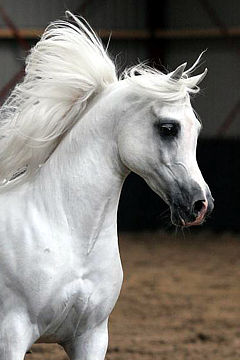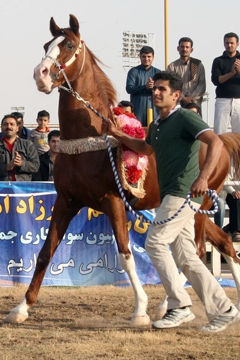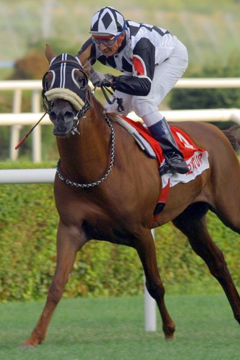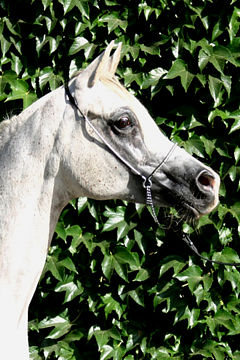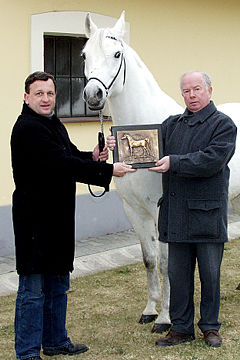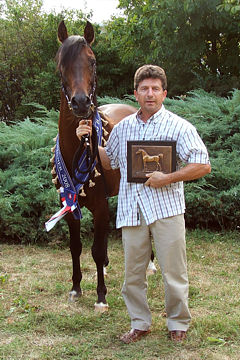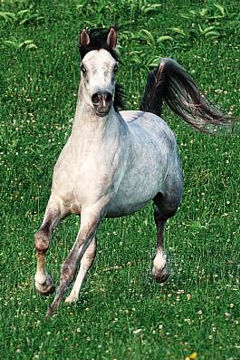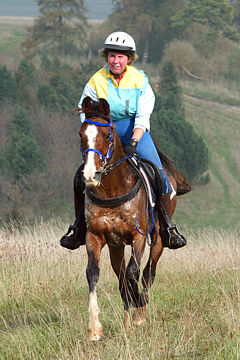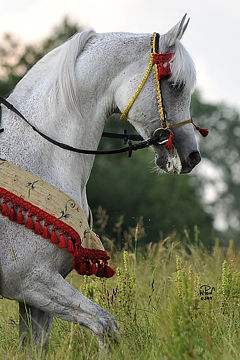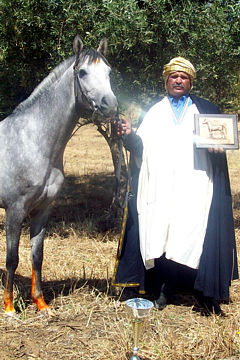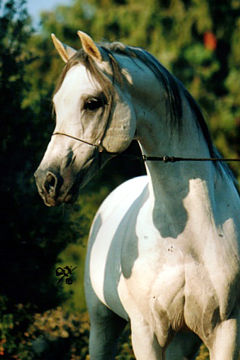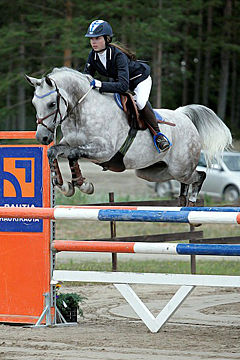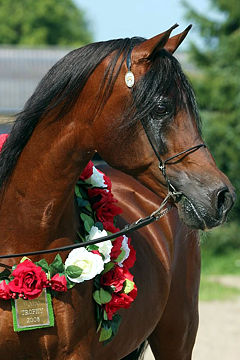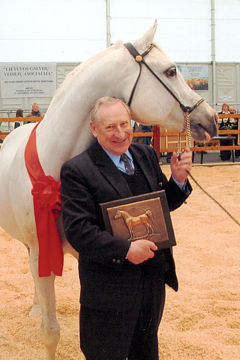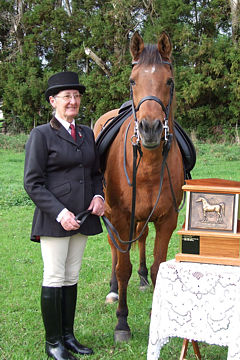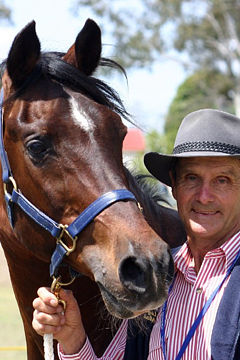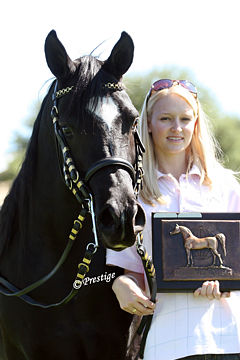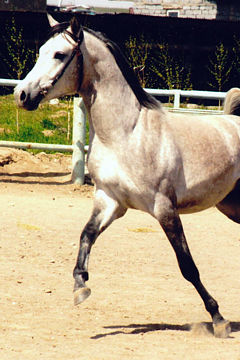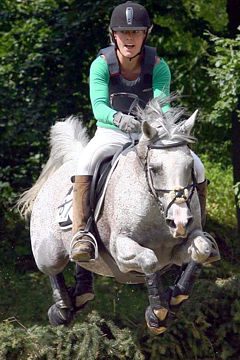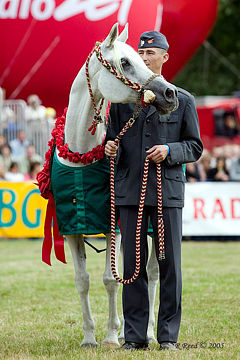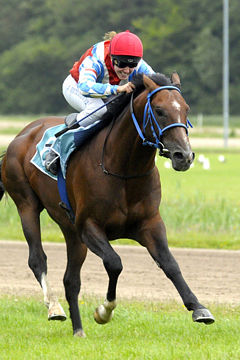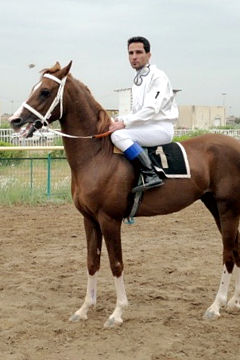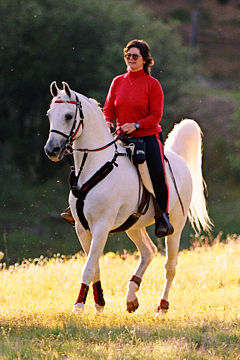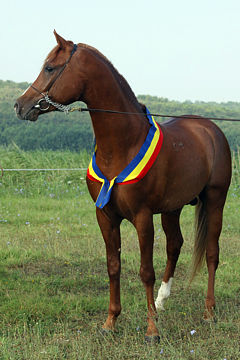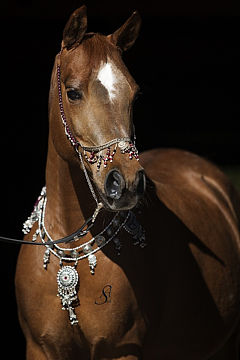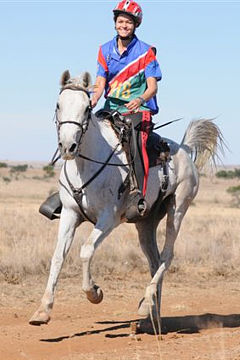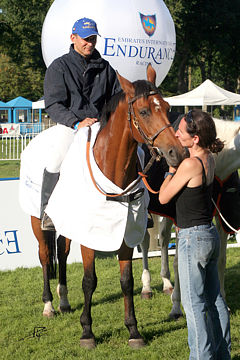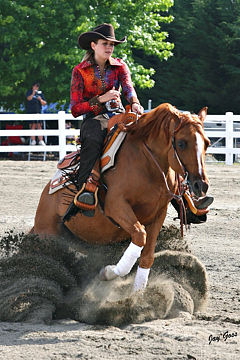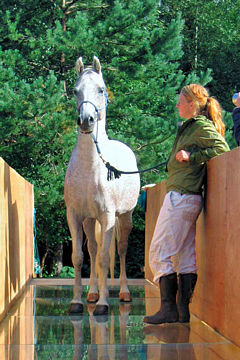![]()
Member Report from Lebanon
REPORT MADE AT 2022 CONFERENCE
My name is Nabil Nasrallah, I am the General Manager of SPARCA, (Society for the Protection and Improvement of the Arabian Horse in Lebanon), national Member of the WAHO and responsible of the Hippodrome. With a total surface of 210,000 m2, making it among the biggest green spaces in the Beirut capital, the racetrack is fully owned by the municipality of Beirut. However, the management of the racetrack and all the related activities on behalf of the Arabian horse industry in Lebanon were mandated to the NGO SPARCA.
I would like to thank HH Princess Alia and WAHO organizers for their kind hosting in Jordan and for being able to present here at the General Assembly the situation of the Arab horses in Lebanon. It is ‘High Noon’ a real crisis point, for the Lebanese Arabian Association, the horses, and the breeders in my country. We must absolutely draw attention to the extent of the crisis. Our story must be told, not only so that the Hippodrome and the horses remain in our memory, but also because we hope to have a future through your support.
I will start my presentation with more general Information about our country, the Arabian horses and the facts that have brought us into a situation that can already be called our century’s catastrophe, even if the century has just begun. However, it is a catastrophe that comes with a history.
After 15 years of other countries war on Lebanese territory (1975-1990) my country was already going through hard times and economic unrest. This has been going on for many years, bringing about the political and financial collapse. Also the Covid 19 pandemic hit us hard with complete lockdowns for many months. In addition, as if all of the above was not enough, Beirut port and center suffered what is now known as the biggest non-nuclear explosion in recent history, killing hundreds, injuring thousands, and displacing over 300,000 households from their homes. The supply of electricity is frequently interrupted, and a large part of the population is unemployed and now lives in poverty. All of this has taken place with complete absence and denial from the political authorities. Today the Lebanese pound has lost more than 95% of its value putting nearly everyone on the verge of bankruptcy.
Lebanon is profoundly a “horse country”. The Romans already recognized the affinity between humans and horses and built the first racecourse in Tyre, in South Lebanon 2000 years ago. “The citizens need bread and games” was the political concept of Caesar, the Roman emperor. Today in Lebanon the authorities cannot even ensure there is enough bread for the population.
Our Arabian horses find themselves in the middle of all of this. With no one paying any attention apart from SPARCA with its very limited resources and also some few people with a passion for these horses and a handful of breeders. But we did not give up. For many of us, Arabian horses provide support and emotional stability, especially in times of crisis. The horses and the racetrack go together. The one cannot exist without the other.
The Beirut Hippodrome, the only racetrack in Lebanon, has been the custodian of major historical events of our country. From the declaration of the State of Greater Lebanon in 1920 to the Independence in 1943, to witnessing the different wars and occupations that Lebanon went through, to remaining the green spot in our city, granting the peaceful coexistence of all religions and the beacon of hope for humans and horses alike. Arabian horses have always been part of our civil society. Also, during the times of war, the racetrack and its horses played a unifying role, bringing together people across their different countries, religions and cultures. They played an important role in the peace negotiations.
The racetrack is a symbol for the fact that in spite of wars and conflicts, things would always go on somehow. For a long time, when many people in Beirut still had money, politics would determine what went on the racetrack, as powerful families, finance, and religion lobby groups all had their say and influence. These times, however, are gone. If the racetrack of Beirut, in the heart of the city, must close, a cultural center will die, that not only cultivated the proud tradition of Arabian horse breeding and training, but has also been a popular platform for Arabian Show horses, and a meeting point for Lebanon citizens. We have to ensure the future of the horses and of the racetrack. The races themselves must continue. Only by keeping the horses and races alive can we safeguard the racetrack for everybody, and with it, the green heart of Beirut. With respect, we need your support to overcome this serious crisis and to be able to plan for the future again.
The focus of our activities is naturally on horse racing. The maintenance of the racing business was and is elementary important for the horses, their breeders and the employees of the racetrack. That is why we have been able to run 30 race meetings a year despite all the difficulties.
With the support of SPARCA the park and the racecourse were every year available for the organization of ECAHO shows for registered purebred Arabians until the Corona epidemic. The successful organizer of these shows was Mr. Danny Ghosn from Beirut. An average of 80 horses were presented to the international team of judges. If the conditions of the track improve, it is planned to resume the shows next year.
With the help of the two international Arabian Horse magazines Tutto Arabi and Desert Heritage Magazine, various articles were published with the aim of finding sponsors for the preservation of the racing operation. As a result, five races were sponsored. This was much less than we had hoped for, but at least a broad public could be sensitized for the preservation of the racecourse as a whole project.
From this action arose a concrete proposal to the Arab breeders. We asked the breeding community and we ask you, to employ your young horses at the racecourse in Beirut. If the horse owners were to invest the cost for two years of stabling and training their horses here, that would be a big support against unemployment on the racetrack. With a monthly cost of $200 for keeping and training the horses, supporters from all over the world can have their horse trained professionally and maybe even get back a successful racehorse. The horses would be broken to the saddle and trained well. In addition, there would be more WAHO horses taking part in races, horses who would also be interesting for Arabian breeding in Lebanon.
The proposal to train young horses on the racetrack in Beirut has also reached the horse community in Australia. Al Dawla Stud farm, horse breeders of Lebanese origin who had specialized in Pure Bred Arabian horses there, heard about the call from Beirut and decided to bring 26 young WAHO Arabians to the racetrack for training. Fortunately, in 2022 this plan became reality. To implement their ideas Mr. Diaa Kara Ali, President of the Levantine Arabian Racing Club (LARC) has presented its new concept in Beirut. His center of attraction is the Hippodrome in Beirut, which urgently needs support and new racehorses in training. LARC aims to promote the integration of WAHO registered racehorses, being influenced by the Polish and Russian tradition of using racing as part of the selection process for breeding. Racing is also considered as a potential market for the Arabian horse lovers. Many of which eventually go into endurance; racing can bring added value if the horse has had a sound successful racing career.
We are happy about this concrete initiative and hope that more good practice approaches will come to make the Parc du Beyrouth and its racecourse, the green heart of Beirut, beat strong again. We appreciate any form of support.
REPORT MADE AT 2017 WAHO CONFERENCE:
Nabil Nasrallah, Lebanon: Your Royal Highness, Mr. President, Members of the Executive Committee, Ladies and Gentlemen. I am Nabil Nasrallah, representing the WAHO Authority in Lebanon. My co-delegate is General Salim Al-Dahdah. First of all, I wish to thank His Majesty King Hamad Bin Isa Al Khalifa, His Royal Highness Sheikh Salman Bin Hamad Al Khalifa and His Royal Highness Sheikh Isa Bin Salman Al Khalifa, as well as the organising committee of WAHO for their very generous hosting in Manama.
For the past few years Lebanon has witnessed an increase in the number of horse breeders with a particular passion for the purebred Arabian horse and an increase in interest in horse shows and contests. However, some new breeders keep their horse in their private paddocks, avoiding the administrative burden of registration.
Volume 6 of our purebred Arabian horse studbook has been released last January and will be dispatched to all members. It shows 111 new horses registered between 2013 and 2016. All foals are DNA typed, parentage tested and microchipped. Actually we have 362 purebred Arabian horses in Lebanon, out of which 105 still have not completed their registrations. We are expecting 62 foals by the end of 2017, out of 161 breeding mares. Here I wish to mention that Lebanon is a very small country.
In July 2015, the first National Arabian Horse Championship was organised at the Hippodrome du Parc du Beirut involving 41 participants. In May 2016, the second Championship was held with 42 participants, followed by a big race for WAHO registered horses. Since then we have been organising monthly races dedicated and restricted to the WAHO registered horses, they are also allowed to participate in racing with the local horses which are held once a week over the year. Finally, I wish to mention that since June 2016 the member states of The World Organisation for Animal Health are authorised to import live registered horses and semen from Lebanon. Thus, opening the possible participation of international racing and events at the Hippodrome of Beirut. Thank you very much for your attention.
REPORT AT 2011 WAHO CONFERENCE:
Good afternoon, I am Nabil Nasrallah, General Manager of the SPARCA, it is the Society for the Protection and Improvement of the Arabian Horse in Lebanon, which is the non-profit organization that runs the horse racing activity in Lebanon since over 100 years and which represents the WAHO authority as well. First of all, I would like to thank His Highness Sheikh Abdullah bin Khalifa Al Thani, the Qatar Racing and Equestrian Club, and the Organizing Committee for their hospitality and excellent organization.
Mr. President, members of the Executive Committee, fellow delegates, ladies and gentlemen. In our small country, and despite the turbulences occurring in our sensitive area, we noticed a significant increase in interest in Arabian horses from professional breeders and amateurs as well. We actually have around 220 living horses, this number being an approximation as some amateur breeders remain satisfied with their horses remaining in their private paddocks and don’t consider any further registration or administrative step.
In 2011 we have recorded 20 new foals, 2 of them issued by artificial insemination. Racing is the main activity, 2 horse shows have also been organized and the next race meeting will take place on December 18th this year. The next publication of our studbook is planned for March 2012. Thank you.
REPORT MADE AT 2009 WAHO CONFERENCE:
My name is Nabil Nasrallah, General Manager of the Beirut Hippodrome, representing the WAHO Registering Authority in Lebanon.
Knowing that Lebanon is a very small country with a long tradition and history of horse-racing over a hundred years, we are working hard to develop the horse-racing for registered WAHO approved Arabians, and hope to organize an International Arabian race next year.
Of course, all our foals, breeding horses and imported horses are all DNA typed and the foals are parent verified. Here we have to confirm again the real problems we encounter, in common with most of the Registrars, which is the delay most of the owners or breeders are taking to register their horses. However I am confident that the DNA typing and parent verification is extending a guarantee of registration. Our next stud book volume will be available on our website, with the previous ones, after July 2009. Thank you for your attention.
REPORT MADE AT 2007 WAHO CONFERENCE:
The current published stud book is the combined volume 3 & 4 to 2004. There are thought to be approximately 200 living Arabian horses in Lebanon, racing is the most popular activity.
As all of you know, Lebanon had a very bad year in 2006 and consequently a significant decrease of all our Arabian activities in comparison to previous years. Moreover, as all foals as well as imported horses and in-transit horses undergo DNA typing for parent verification, most of the owners delay their registration as long as they can. Our next stud book volume will be available on our website with the previous ones, by July 2007. We are confident that by the next WAHO meeting in 2009 we will have much more to report.
In 2007 Lebanon reported 18 registered foals, with 4 exports and 4 imports. Racing continues to be the most popular activity for Arabians.

